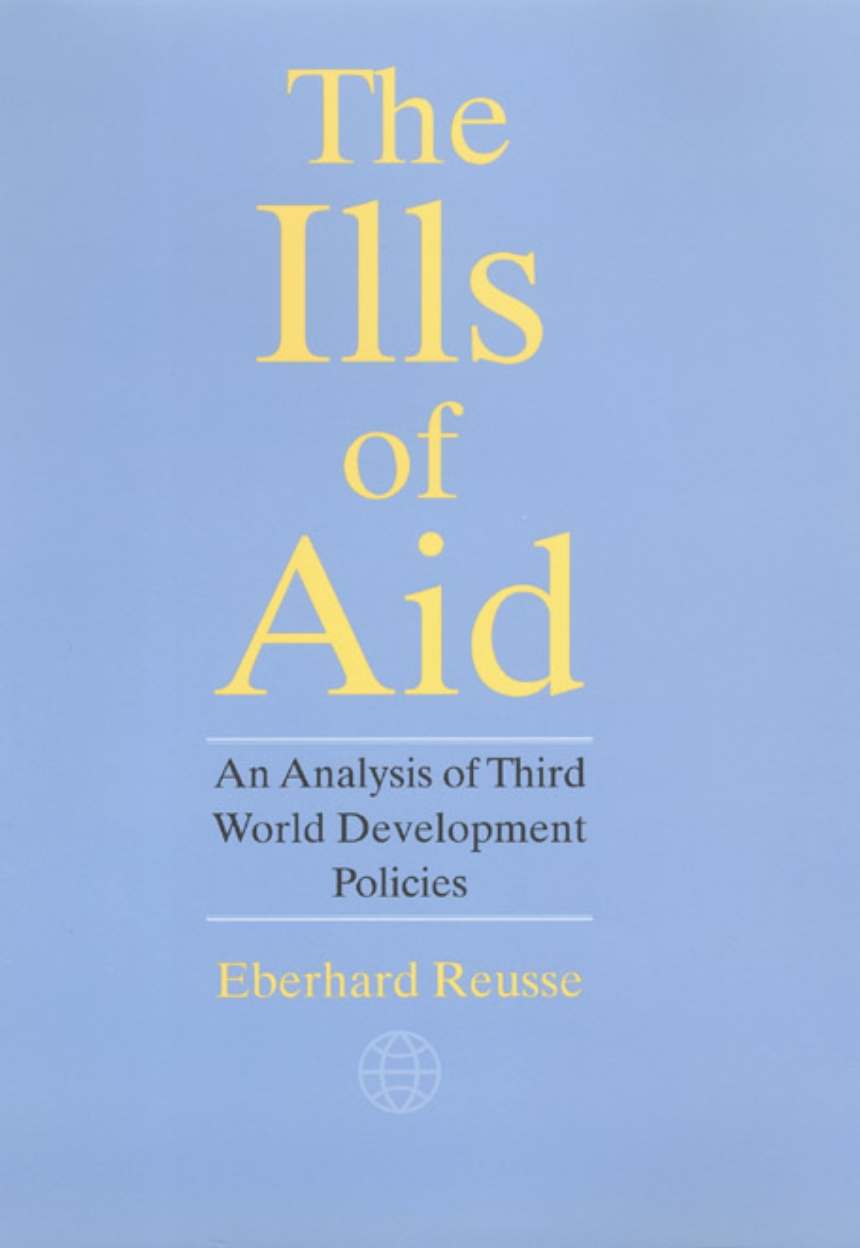The Ills of Aid
An Analysis of Third World Development Policies
With this book, Eberhard Reusse channels thirty years of experience with international aid programs into the task of both diagnosing the problems afflicting these programs and formulating a possible cure. Supporting his analysis with detailed case studies of two rural development programs in Africa—the United Nations’ "War on Waste" and cereal banks for small-farmer communities—Reusse reveals a system riddled with flaws. Impatient assumptions, belated and often suppressed recognition of their invalidity, and the perpetuation of unsuitable programs over decades—all are characteristic of the system. Local populations "fail" to participate in programs, or their accumulated firsthand knowledge is ignored and marginalized. Development experts make misjudgments or are adversely pressured by funding concerns. Programs are unevaluated and unaccountable to donors, perpetuating themselves long after they’re proved ineffective or inefficient. And throughout the book, Reusse demonstrates the principal systemic flaw: unrealistic interventionist paradigms—that is, Western notions of Third World realities that misidentify needs for intervention—at the root of most inappropriate development policies. The problems continue to this day.
Very few critiques of foreign development aid have approached the subject from the perspectives of organizational, rural, or epistemic sociology. The Ills of Aid combines all three, and points toward fundamental solutions: more direct accountability to the primary funding base—the international taxpayer—and the privatization of aid. Learned, pragmatic, and important, The Ills of Aid is essential reading for all in the field.Organization, other international and bilateral development programs, and development financing institutions. His field experience embraces more than forty countries.
Very few critiques of foreign development aid have approached the subject from the perspectives of organizational, rural, or epistemic sociology. The Ills of Aid combines all three, and points toward fundamental solutions: more direct accountability to the primary funding base—the international taxpayer—and the privatization of aid. Learned, pragmatic, and important, The Ills of Aid is essential reading for all in the field.Organization, other international and bilateral development programs, and development financing institutions. His field experience embraces more than forty countries.
127 pages | 2 tables | 6 x 9 | © 2002
Economics and Business: Economics--Development, Growth, Planning
Political Science: Diplomacy, Foreign Policy, and International Relations
Table of Contents
Foreword by Vernon W. Ruttan
Foreword by Paul Streeten
Preface
List of Abbreviations
Introduction
1. The Background
1.1Thinking about Development
1.2Salient Features of Development Aid:
A Practitioner’s Introduction
1.3Study Approach
2. The Cases
2.1The "War on Waste"
2.2 Cereal Banks
3. Analysis and Discussion
3.1The Paradigm Life Cycle
3.2Behavioral Background
3.3The Ills of Aid
3.4Interactions/Interdependencies around
the Interventionist Paradigm
4. Conclusionsw and Recommendations
4.1Principal Restructuring Elements
4.2Evaluation
4.3UN Technical Agencies
4.4Anthropological (or Reality Experience) Year
4.5Accountability to the Basic Providers of Funds
4.6Privatization of Aid?
4.7Globalization with Tact
4.8"Development Aid, End It or Mend It"
References
Foreword by Paul Streeten
Preface
List of Abbreviations
Introduction
1. The Background
1.1Thinking about Development
1.2Salient Features of Development Aid:
A Practitioner’s Introduction
1.3Study Approach
2. The Cases
2.1The "War on Waste"
2.2 Cereal Banks
3. Analysis and Discussion
3.1The Paradigm Life Cycle
3.2Behavioral Background
3.3The Ills of Aid
3.4Interactions/Interdependencies around
the Interventionist Paradigm
4. Conclusionsw and Recommendations
4.1Principal Restructuring Elements
4.2Evaluation
4.3UN Technical Agencies
4.4Anthropological (or Reality Experience) Year
4.5Accountability to the Basic Providers of Funds
4.6Privatization of Aid?
4.7Globalization with Tact
4.8"Development Aid, End It or Mend It"
References
